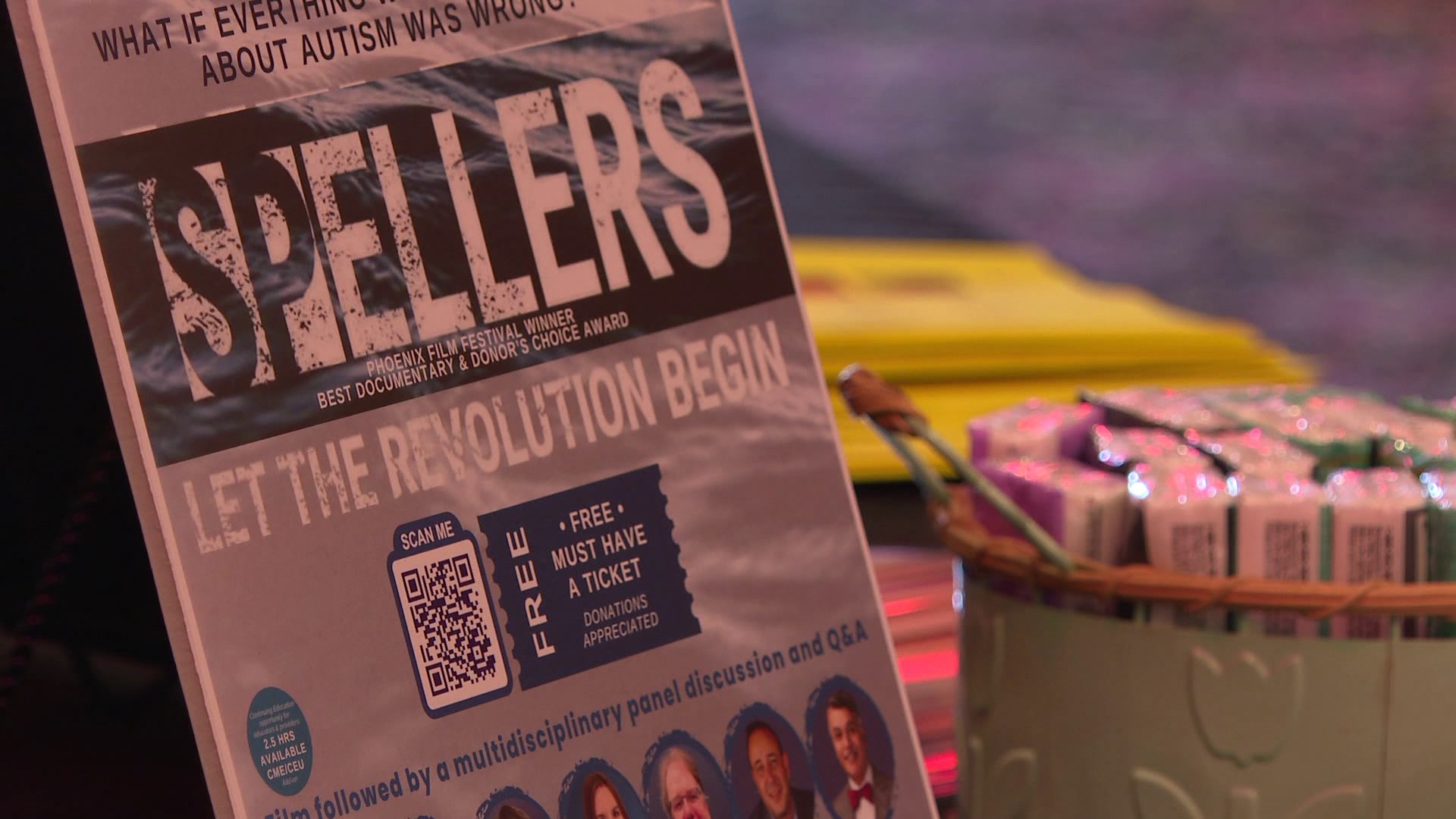KENTWOOD, Mich. — On the heels of Autism Awareness Month in April, advocates gathered at Celebration Cinema in Kentwood on May 7 for the screening of a film about nonverbal autism called "Spellers".
The event was hosted by Research and Education for Autistic Children's Treatment, or REACT.
"It's a film about kids that have been nonverbal their entire lives, unable to break their silence," REACT President Maija Hahn said. "And now, they found a therapy modality that's allowed them to do that through a program called spelling to communicate."
The event also included a panel discussion with experts to answer questions and dispel biases associated with nonverbal autism.
One of those experts, physician and REACT Director Dr. James Neuenschwander, explained a method used by those in the film to express themselves in other ways.
"So, what we do is we take it out of the fine motor skill area and put it into gross motor—you're talking the shoulder, the arm, the forearm," Neuenschwander said. "They have a pencil in their hand and they have a stencil board, and they point to letters."
Techniques like this, fellow panelist and functional medicine physician Dr. Krishna Doniparthi said, can educate people to see the truth behind what nonverbal autism really is.
"What many people think, or may think about children afflicted with autism is that they're dumb, they're low IQ and they're just not able to follow any commands, they're not listening, they're in their own little world," Doniparthi said. "That's just not the case. Their brain is working just fine. They just can't express in the way that you and I would like to."
Those at the screening hoped it would give new perspective and help spread both compassion and understanding.
"Even if you have a kid that has [Down syndrome], or a kid that has cerebral palsy, just assume competence," Neuenschwander said. "That's particularly true of these kids, the nonverbal kids with autism, because you have no idea how smart they are. And some of these kids are super geniuses, and you don't realize it until they start spelling and telling. I mean, these are very, very complex thoughts that they have."
►Make it easy to keep up to date with more stories like this. Download the 13 ON YOUR SIDE app now.
Have a news tip? Email news@13onyourside.com, visit our Facebook page or Twitter. Subscribe to our YouTube channel.

